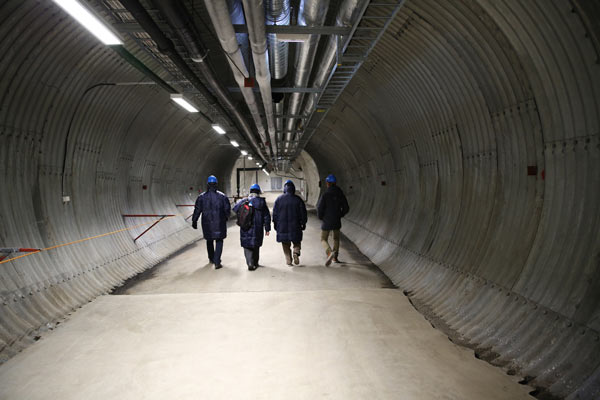-
Tips for becoming a good boxer - November 6, 2020
-
7 expert tips for making your hens night a memorable one - November 6, 2020
-
5 reasons to host your Christmas party on a cruise boat - November 6, 2020
-
What to do when you’re charged with a crime - November 6, 2020
-
Should you get one or multiple dogs? Here’s all you need to know - November 3, 2020
-
A Guide: How to Build Your Very Own Magic Mirror - February 14, 2019
-
Our Top Inspirational Baseball Stars - November 24, 2018
-
Five Tech Tools That Will Help You Turn Your Blog into a Business - November 24, 2018
-
How to Indulge on Vacation without Expanding Your Waist - November 9, 2018
-
5 Strategies for Businesses to Appeal to Today’s Increasingly Mobile-Crazed Customers - November 9, 2018
Doomsday seed bank opened for first time because of Syrian war
Thanks to the Syrian civil war, the Svalbard Global Seed Vault has been hit with its first request for a withdrawal.
Advertisement
The seeds, including samples of wheat, barley and grasses suited to dry regions, have been requested by researchers elsewhere in the Middle East to replace seeds in a gene bank near the Syrian city of Aleppo that has been damaged by the war. It is the first withdrawal from the bank, which was built in 2008.
The seed bank in Aleppo, Syria has been a major worldwide research station for dry-land agricultural crops for many years.
While the Norwegian minister has opted not to disclose the location to which the seeds are to be sent, the creator of Svalbard Global Seed Vault, Professor Cary Fowler, said in August that the center would reestablish its stocks in Morocco and Lebanon.
“Protecting the world’s biodiversity in this manner is precisely the goal of the Svalbard Global Seed Vault”, said Brian Lainoff, a spokesman for the Crop Trust, which runs the underground storage on a Norwegian island 1,300 km (800 miles) from the North Pole, Reuters reported.
Credit: John McConnico/ASSOCIATED PRESS ICARDA wants some of the seeds it deposited there back, as it can’t maintain operations at its bank in conflict laden Syria.
The vault, which opened on the Svalbard archipelago in 2008, is created to protect essential crop seeds – such as bean, rice and wheat – in the event of a cataclysmic disaster like nuclear war or disease. ICARDA’s temporary unit in the Lebanese capital was only partially functioning, and it needed these samples as part of “its role as a hub to grow seeds and distribute them to other nations”, the news agency explained. Once the new plants are growing, more seeds will be gathered and sent back to Svalbard as a back-up.
According to Reuters, ICARDA has asked for 130 of the 325 boxes of seeds it sent to Svalbard to be returned.
Advertisement
“This shows why it is so important to have a global seed bank like this, as a back-up when things occur in the world, and when there is a risk that important germs may be lost,” Listhaug told VG newspaper. The conflict has killed hundreds of thousands and forced more than 4 million people to become refugees.





























